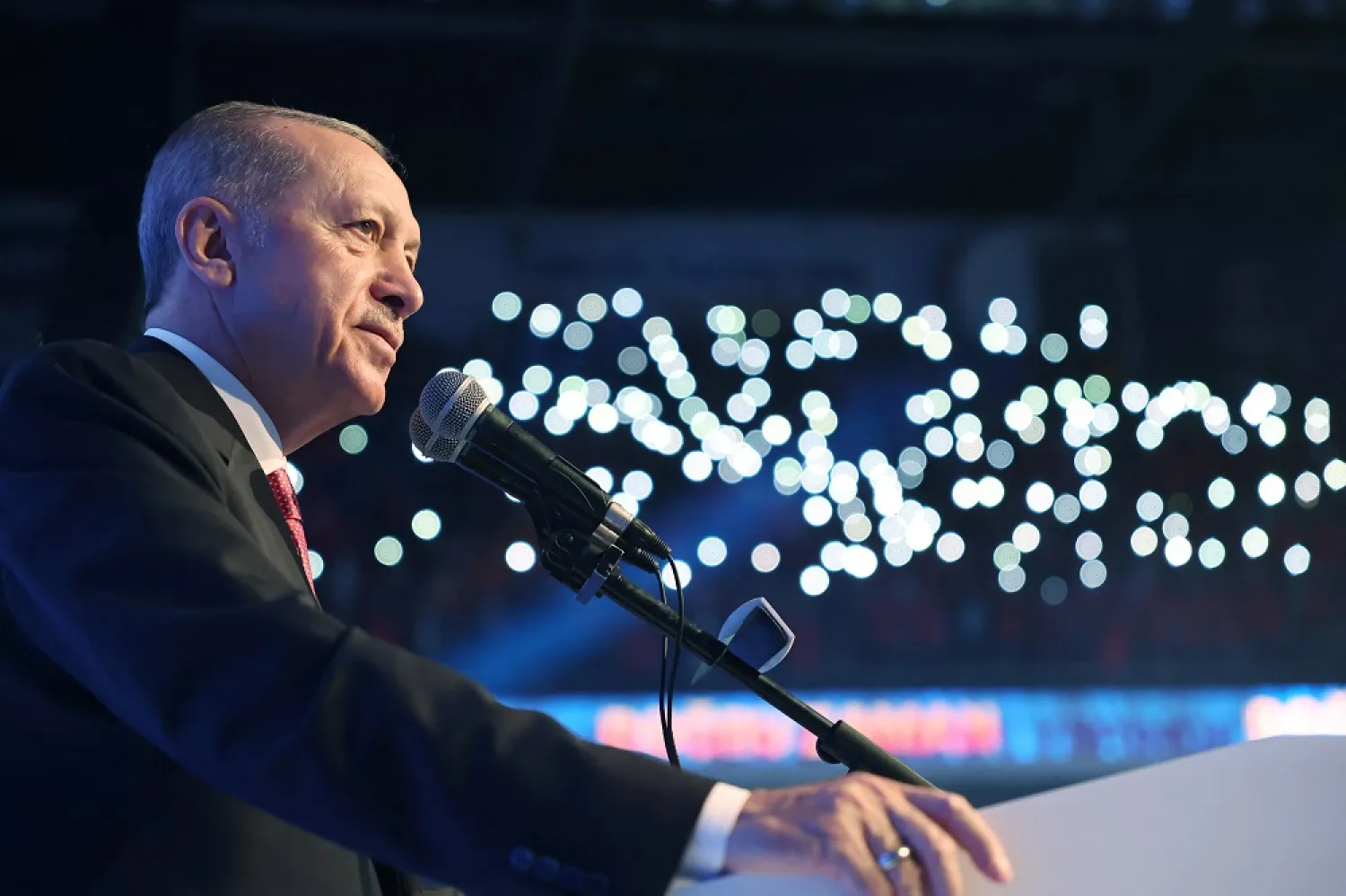Turkish President Recep Tayyip Erdogan launched his re-election campaign on Tuesday with a party pledge to slash inflation to single digits and boost growth, as he seeks to extend his two decades in power in a May 14 vote.
Erdogan is facing the biggest political challenge since his AK Party (AKP) came to power in 2002, with polls showing support sagging in recent years after unorthodox economic policies hobbled the lira currency and sent inflation surging.
Even so, the president repeated his economic mantra that investment, production, exports and an eventual current account surplus would drive gross domestic product.
"We will bring inflation back down to single digits and definitely save our country from this problem," he told a stadium crowd in Ankara.
Erdogan's aggressive interest rate cuts sent inflation to a 24-year peak above 85% in October before it dipped to near 50% in March. The ensuing cost-of-living crisis has gripped Turkish households and squeezed earnings and savings.
"We will improve the investment further with a structure based on a free-market economy integrated with the world," the ruling party's manifesto said, aiming for annual growth of 5.5% in 2024-2028 and GDP of $1.5 trillion by end-2028.
Erdogan said last week a team was working on strengthening economic policies under the coordination of former economic tsar Mehmet Simsek, who is well respected by international investors.
Some AKP members have previously said they wanted Simsek to champion a pivot to more free-market policies after years of unorthodoxy under Erdogan.
However, the manifesto made no direct reference to a return to orthodoxy, and said the low-rate policy was the main driver of entrepreneurs investing in the real sector and creating jobs.
In the presidential election next month, Erdogan will be up against the main opposition alliance candidate, Kemal Kilicdaroglu.
In the latest survey from Metropoll, 42.6% of respondents said they would vote for Kilicdaroglu and 41.1% for Erdogan in first-round voting, with the other two presidential candidates receiving 7.2% support.
Support for Erdogan dipped slightly after February's devastating earthquake amid perceptions of an initially slow response.
"Our priority in the upcoming period will be to restore our cities which were devastated," Erdogan said, adding the government aims to build 650,000 apartments for survivors.
On foreign policy, Erdogan said the AKP would continue normalizing relations in the region and aim to build an "axis of Türkiye". Ankara recently took steps to mend relations with Israel, Saudi Arabia, Egypt and Syria after years of tension.
"We can negotiate with both sides in the Russia-Ukraine war, make concrete progress such as the grain corridor and prisoner exchange, and we can still speak of the possibility of peace," Erdogan said.









